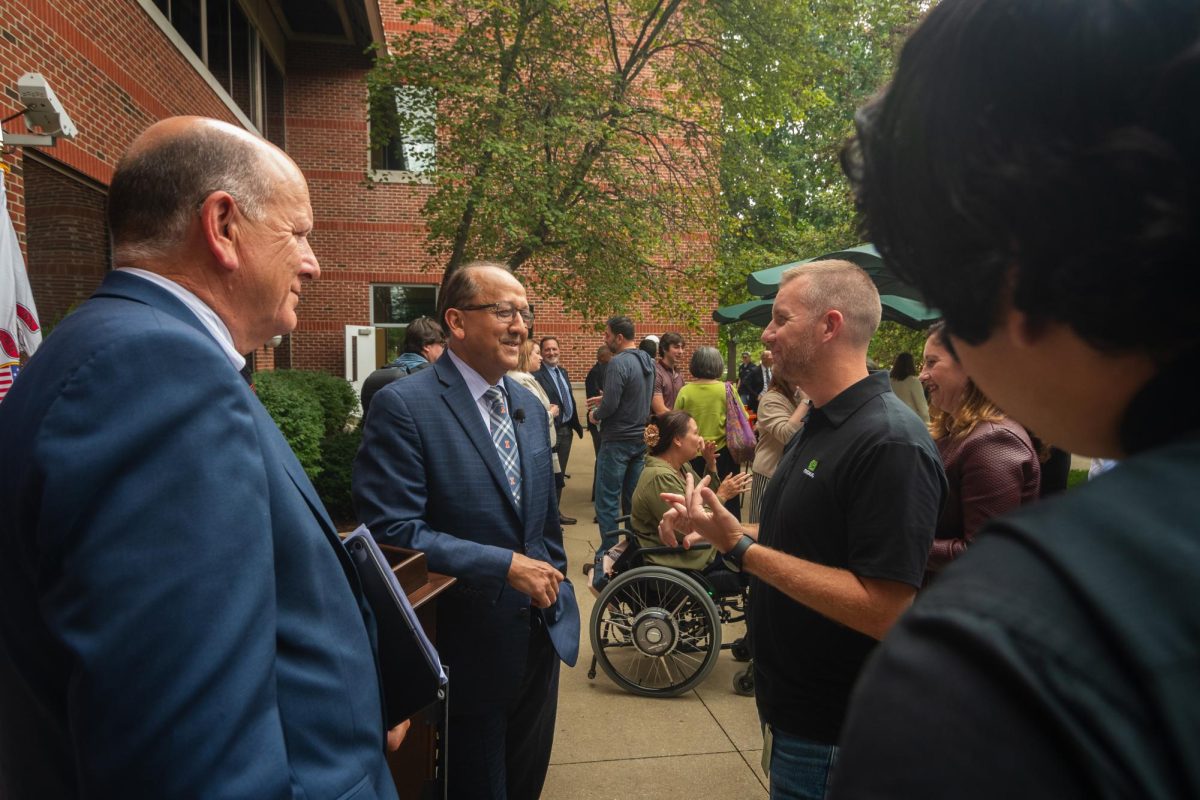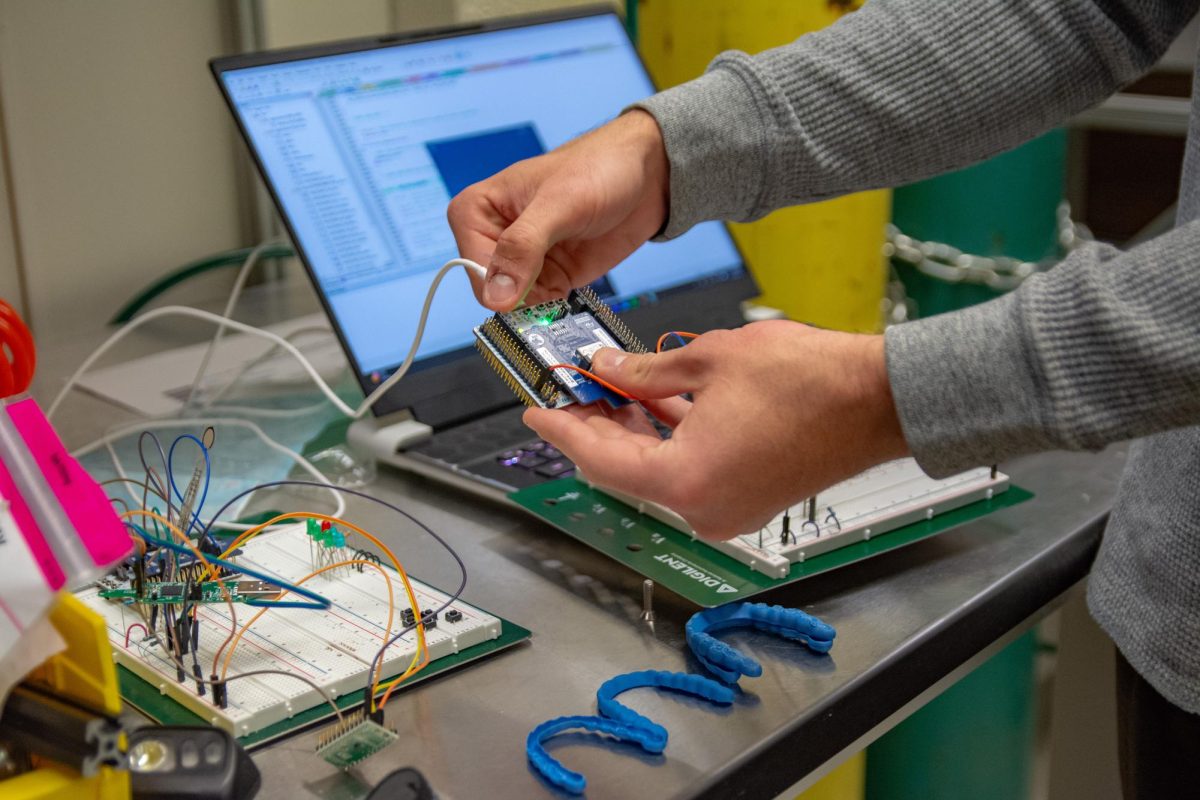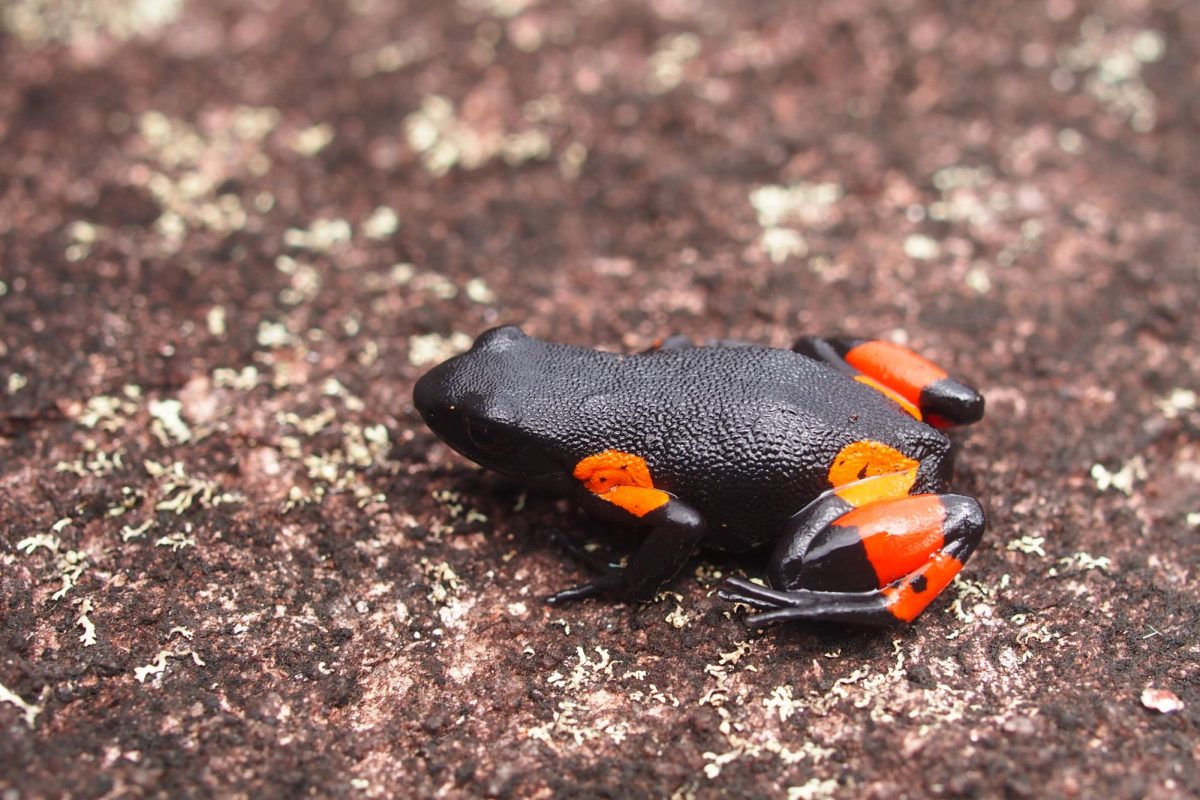In an effort to combine medicine and engineering, Rashid Bashir, dean of Grainger College of Engineering, is testing various ways to maximize technology for individualized health. His research focuses include nanotechnology for personalized medicine and 3D bioprinting for drug screening.
Bashir, who was recently elected to the National Academy of Medicine for contributions to the field of biomedical engineering, has been faculty at the University since 2007. He also helped make the Carle Illinois College of Medicine the world’s first engineering-based medical school.
A biohybrid system: Miniature robots made of engineered cells
Bashir’s lab, the Laboratory of Integrated Bio Medical Micro/Nanotechnology and Applications on campus, recently published an article titled “Remote control of muscle-driven miniature robots with battery-free wireless optoelectronics.”
Get The Daily Illini in your inbox!
The article introduced a battery-free biohybrid system — very tiny, centimeter-scaled walking robots. These robots were able to respond to commands and, because they were light-emitting, allowed for real-time communication at small magnification.
The team also engineered muscle tissue for the basis of the robot, providing the biological aspect of the machine. Bashir described the project as the “use of 3D bioprinting and sort of fabrication technologies with scaffolds and living cells to develop what we call living machines.”
The goal of this specific experiment was to open doors to further research in these machines. According to the paper, specifically, “a class of biohybrid machines able to combine biological actuation and sensing with on-board computing.”
The miniature robots hope to improve optogenetics, a biological technique that uses light to activate transgenic cells. Optogenetics requires light sources to be near the muscles of interest, but the robots would allow the light to be manually commanded.
“Our work on biohybrid robots is very exciting and innovative … Someday we will have machines and devices around us that (are) made of living cells that can adapt, self-heal, learn and not harm the environment,” Bashir said.
Disease: Diagnosis and detection
Another aspect of Bashir’s research includes innovation in the detection and diagnosis of various diseases, including sepsis and cancer. The team focuses on developing “point of care sensors and different approaches to personalized diagnostics from bodily fluids,” he said.
“Essentially, this means through an individual’s bodily fluids, like blood, saliva or urine, we can detect disease markers right at the personalized level,” Bashir explained.
Through nanotechnology and microfluidics, Bashir hopes to bring the lab to the patient. Implications of this research can impact society whole-scale, he said.
“It can have, you know, really a profound effect on medicine by lowering costs and increasing access and increasing quality,” Bashir added.
In a recently published article titled “Advances in field-effect biosensors towards point-of-use,” Bashir and co-author Sihan Chen reviewed recent developments in biosensors.
VedaBio
Bashir co-founded VedaBio on Oct. 17 with Anurup Ganguli, a University alum and former student of Bashir’s. VedaBio is a molecular detection group based out of California, which received over $40 million in initial funding.
The main objective of VedaBio uses CRISPR to “revolutionize molecular detection,” the company’s website said. They did this through a new form of technology that Ganguli created, dubbed the CRISPR Cascade.
CRISPR is a gene editing technology that allows scientists to selectively edit DNA but requires gene amplification through polymerase chain reaction. VedaBio modified the pre-existing CRISPR technology to no longer require target amplification while still maintaining PCR-level accuracy in the Cascade.
Bashir noted this was something he was excited about. The molecular diagnostic technique, Bashir said, was revolutionary in rapid detection and had much potential in the field of health and medicine.
Impact through engineering
Bashir’s research across scientific disciplines through various projects has ultimately led to numerous awards and recognitions.
Besides the National Academy of Medicine, Bashir is a member of the National Academy of Inventors, the American Association for the Advancement of Science and the American Institute of Medical and Biological Engineering.
“I am honored and humbled to be elected in NAM, and to lead the Grainger College of Engineering as the dean,” Bashir said. “I hope to do what I can to continue to make an impact on humanity at large using engineering solutions … at the convergence of engineering and medicine.”







